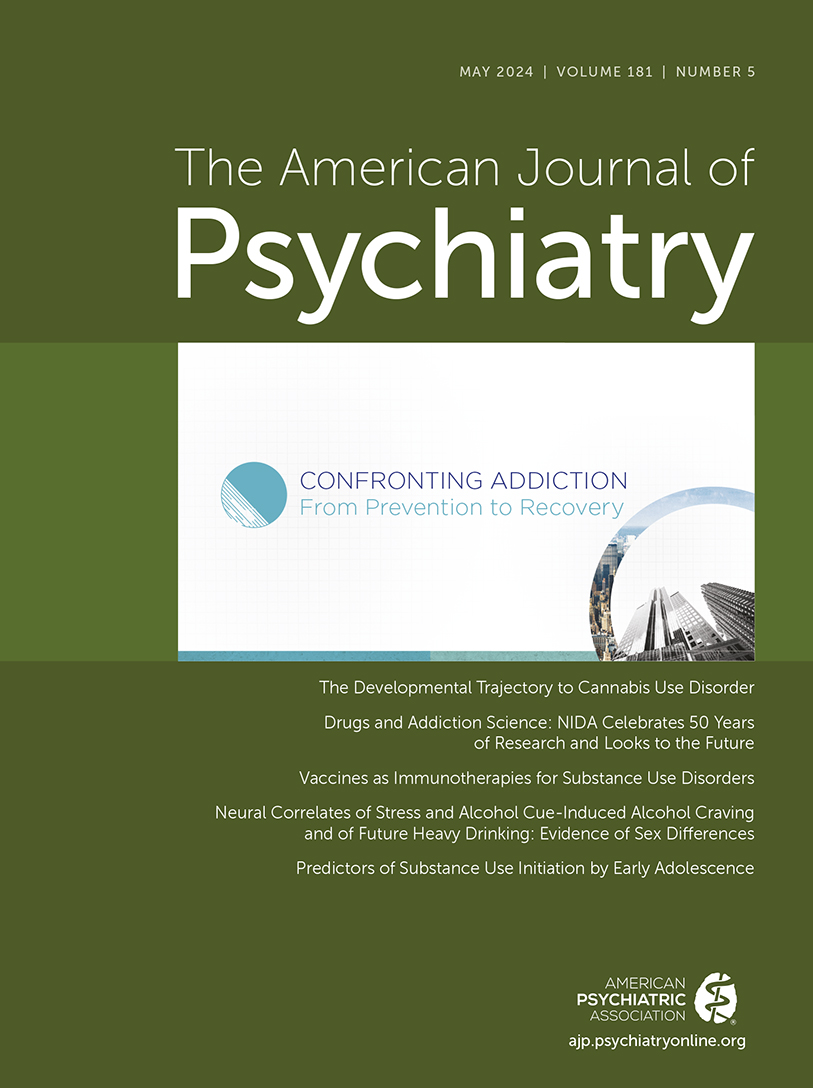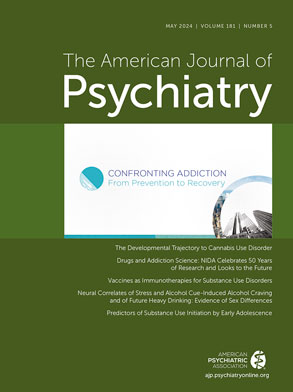Associations of Menstrual Cycle and Progesterone-to-Estradiol Ratio With Alcohol Consumption in Alcohol Use Disorder: A Sex-Separated Multicenter Longitudinal Study
Abstract
Objective:
Methods:
Results:
Conclusions:
Get full access to this content
View all available purchase options and get full access to this content.
Information & Authors
Information
Published In
History
Keywords
Authors
Details
Sabine Hoffmann, M.A.
Sarah Gerhardt, M.Sc.
Christiane Mühle, Ph.D.
Iris Reinhard, Ph.D.
Dominic Reichert, M.Sc.
Patrick Bach, M.D., Ph.D.
Rafat Boroumand-Jazi, M.Sc.
Christine Kuehner, Ph.D.
Alvaro Aguilera, Dipl.Inf.
Acelya Aslan, M.A.
Nadja S. Bahr, M.Sc.
Matthew Belanger, M.Sc.
Friederike Deeken, Ph.D.
Claudia Ebrahimi, Dr.rer.nat.
Pascale C. Fischbach, M.Sc.
Marvin Ganz, M.Sc.
Maria Garbusow, Dr.rer.nat.
Charlotte M. Großkopf, M.D.
Marie Heigert, M.Sc.
Angela Hentschel, M.Sc.
Damian Karl, M.Sc.
Shuyan Liu, Ph.D.
Massimiliano Mazza, M.D.
Patricia Pelz, Dr.rer.medic.
Mathieu Pinger, M.Sc.
Matthias Reichl, M.D.
Carlotta Riemerschmid, M.Sc.
Annika Rosenthal, M.Sc.
Johannes Steffen, M.Sc.
Jens Strehle, Dipl.Math.
Friederike Wedemeyer, M.D.
Franziska Weiss, Ph.D.
Julia Wenzel, Dipl.Psych.
Gesine Wieder, Dr.rer.nat.
Alfred Wieland, M.Sc.
Judith Zaiser, M.Sc.
Hilmar G. Zech, M.Sc.
Sina Zimmermann, M.Sc.
Johannes Kornhuber, M.D.
Christian P. Müller, Ph.D.
Wolfgang H. Sommer, M.D., Ph.D.
Rainer Spanagel, Ph.D.
Tobias Banaschewski, M.D., Ph.D.
Lorenz Deserno, M.D.
Ulrich W. Ebner-Priemer, Ph.D.
Herta Flor, Ph.D.
Peter Kirsch, Ph.D.
Marcella Rietschel, M.D.
Sabine Vollstädt-Klein, Ph.D.
Henrik Walter, M.D., Ph.D.
Andreas Meyer-Lindenberg, M.D., Ph.D.
Michael A. Rapp, M.D., Ph.D.
Stephanie Witt, Ph.D.
Michael N. Smolka, M.D.
Andreas Heinz, M.D., Ph.D.
Heike Tost, M.D., Ph.D.
Falk Kiefer, M.D.
Markus Reichert, Ph.D.
Bernd Lenz, M.D. bernd.lenz@zi-mannheim.de
ReCoDe Consortium
Notes
Author Contributions
Funding Information
Metrics & Citations
Metrics
Citations
Export Citations
If you have the appropriate software installed, you can download article citation data to the citation manager of your choice. Simply select your manager software from the list below and click Download.
For more information or tips please see 'Downloading to a citation manager' in the Help menu.
Media
Figures
Other
Tables
Share
Share
Get Access
Get Access
Login options
Already a subscriber? Access your subscription through your login credentials or your institution for full access to this article.
Personal login Institutional Login Open Athens loginPurchase Options
Purchase this article to access the full text.
PPV Articles - American Journal of Psychiatry
Not a subscriber?
PsychiatryOnline subscription options offer access to the DSM-5-TR® library, books, journals, CME, and patient resources. This all-in-one virtual library provides psychiatrists and mental health professionals with key resources for diagnosis, treatment, research, and professional development.
Need more help? PsychiatryOnline Customer Service may be reached by emailing PsychiatryOnline@psych.org or by calling 800-368-5777 (in the U.S.) or 703-907-7322 (outside the U.S.).

